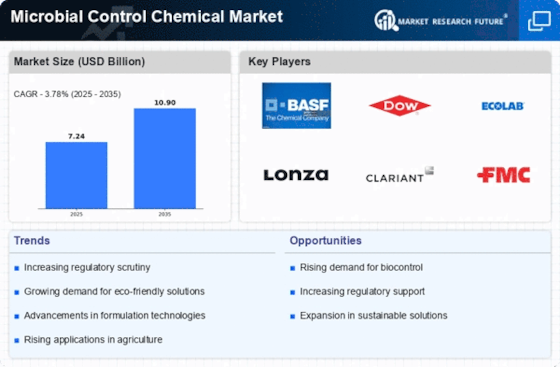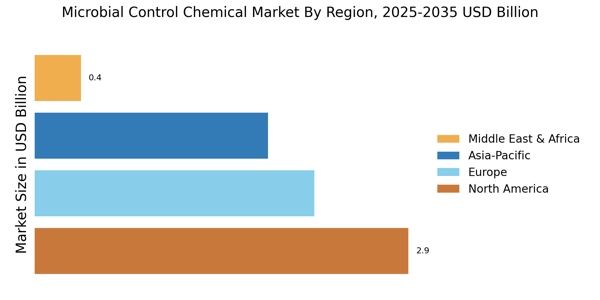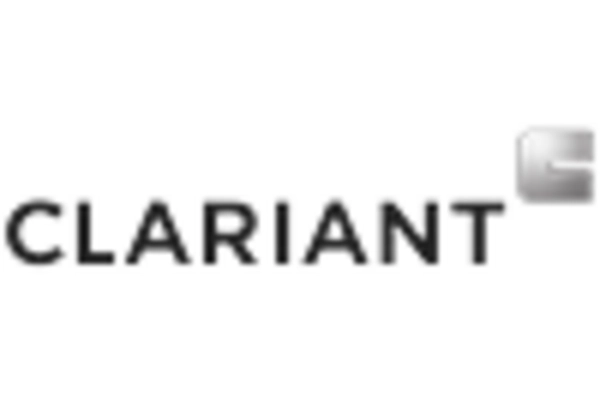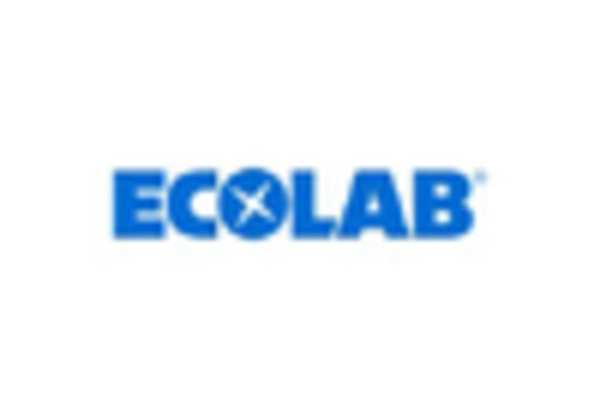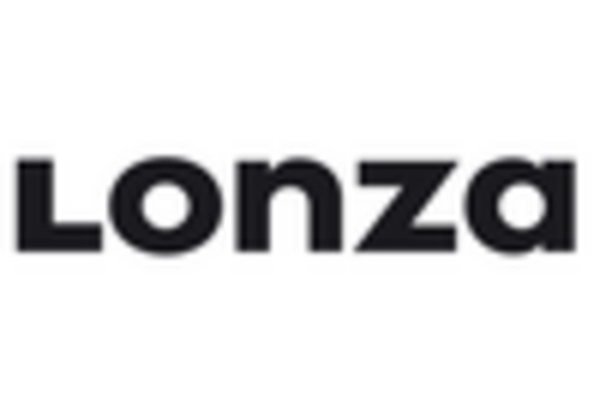Increased Regulatory Standards
The implementation of stringent regulatory standards concerning microbial contamination is influencing the Microbial Control Chemical Market. Governments and health organizations are establishing guidelines to ensure public safety, particularly in sectors such as food, pharmaceuticals, and healthcare. Compliance with these regulations necessitates the use of effective microbial control chemicals, thereby driving market growth. For example, the introduction of the Food Safety Modernization Act has led to increased scrutiny of food safety practices, compelling manufacturers to adopt advanced microbial control measures. As a result, the Microbial Control Chemical Market is expected to see a surge in demand for compliant products that meet these regulatory requirements.
Rising Demand for Hygiene Products
The increasing awareness regarding hygiene and sanitation is driving the Microbial Control Chemical Market. Consumers are becoming more conscious of the need for effective microbial control in various settings, including households, healthcare facilities, and food processing industries. This heightened demand is reflected in the growth of hygiene products, which are projected to reach a market value of approximately 30 billion USD by 2026. As a result, manufacturers are focusing on developing innovative microbial control solutions that cater to this growing need, thereby enhancing their market presence. The Microbial Control Chemical Market is likely to benefit from this trend, as companies strive to meet consumer expectations for safety and cleanliness.
Expansion of the Food and Beverage Sector
The food and beverage sector is experiencing substantial growth, which is positively impacting the Microbial Control Chemical Market. With the increasing production and consumption of processed foods, the need for effective microbial control measures has become paramount. The market for food preservatives, which includes microbial control chemicals, is expected to reach around 20 billion USD by 2025. This growth is driven by the necessity to extend shelf life and ensure food safety, prompting manufacturers to invest in advanced microbial control solutions. Consequently, the Microbial Control Chemical Market is poised to expand as food producers seek reliable methods to mitigate microbial contamination.
Growing Awareness of Antimicrobial Resistance
The rising concern over antimicrobial resistance is significantly impacting the Microbial Control Chemical Market. As pathogens evolve and become resistant to conventional treatments, there is an urgent need for effective microbial control solutions. This awareness is prompting healthcare providers and industries to seek innovative chemicals that can combat resistant strains. The market for antimicrobial agents is projected to grow substantially, with estimates indicating a potential increase of 5 billion USD by 2027. This trend suggests that the Microbial Control Chemical Market will likely experience heightened demand for advanced solutions that address the challenges posed by antimicrobial resistance.
Technological Innovations in Microbial Control
Technological advancements are playing a crucial role in shaping the Microbial Control Chemical Market. Innovations such as nanotechnology and biotechnology are leading to the development of more effective and environmentally friendly microbial control agents. For instance, the introduction of bio-based microbial control solutions is gaining traction, as they offer sustainable alternatives to traditional chemicals. The market for such innovative solutions is projected to grow significantly, with estimates suggesting a compound annual growth rate of over 7% in the coming years. This trend indicates that the Microbial Control Chemical Market is likely to evolve rapidly, driven by the demand for safer and more efficient products.


